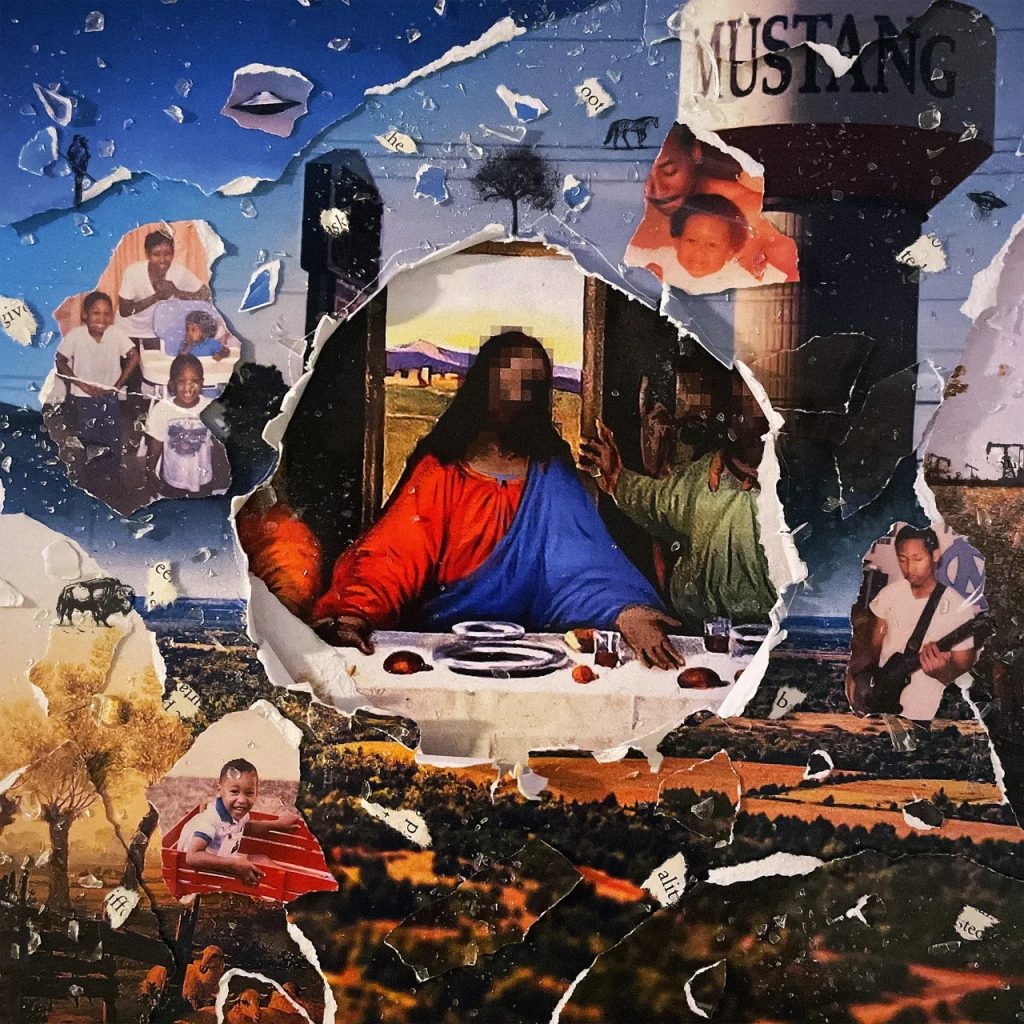
The last couple years have been strange for Bartees Leon Cox Jr. After his 2020 debut album Live Forever caught fire in the early days of the pandemic — lighting up audiences with its genre-scrambling fusion of indie rock, hip-hop, electronic dance music and midwestern emo — the 33-year-old music artist known as Bartees Strange has found himself trading a career in communications for sold-out tours, broadcast television appearances and shared billing with some of the very bands he grew up admiring in the rural suburbs west of Oklahoma City.
The timing and tenor of this success has abruptly knocked the D.C.-based musician into another orbit, but it didn’t come out of nowhere. Since he picked up his first guitar as a teenager, zapped by the otherworldly energy of millennial New York art-rock heroes TV on the Radio, Strange has dedicated himself to building a life around his songs.
“I didn’t ever think I would make it. I just knew I was never going to stop,” he says. “I doubted it my entire 20s, because I was thinking of it the wrong way. I was comparing myself to all these artists who were having these huge moments. I was like, ‘Damn, I missed my shot.’”
But Strange didn’t miss his shot. Instead, with this year’s release of his acclaimed sophomore effort Farm to Table, he’s having his biggest moment yet. Released last June on the legendary British indie label 4AD, his blistering and beautiful new record was met with glowing reviews from new-media tastemakers like Pitchfork and old guards like Rolling Stone, landing the emerging musician at the center of human-interest profiles in The Washington Post, The New York Times Magazine, PBS NewsHour and elsewhere.
“It makes me think about the next couple years,” Strange says when asked about how far he’s come since the shot in the dark of his chameleonic debut. “Because honestly, I’m like, ‘Whoa, that shit worked! I can’t believe it. What could happen next?’”

This journey from the rural reaches of the Sooner State to indie rock stardom is right there in the title of Strange’s latest: Farm to Table. It’s partly a reference to his former summer job painting fences on a farm in Yukon, Oklahoma, before making his way decades later to a seat at the glass-top conference tables of the music industry — a place he never thought he’d be.
“As I got older, I started falling more and more in love with music, and I was seeing these artists I wanted to be around,” he says. “I started wondering, ‘How do you get a seat at that table? How do you become one of those people?’ It felt so out of reach.”
But there’s a second meaning to that turn of phrase (“a seat at the table”) that underscores the challenges of navigating the alt-rock world as an artist of color. It’s a conversation Strange doesn’t shy away from, and one he hopes will prop open the door for more Black and brown artists on the same path.
“Farm to Table is about getting to the table with these people you admire. Now I’m at the table and everybody’s white,” he says. “I’m realizing my journey is not going to be like any of these people’s journeys, no matter how much I respect and love their music. My journey is going to be different — maybe for better, maybe for worse, but it’s going to be mine.”
Like the pixelated Black Jesus collaged in a Last Supper scene alongside the artist’s childhood photos on the cover of his new LP, Strange has found himself pulling up his chair at a pivotal moment. Now he’s using the opportunity to say something that matters, and say it with his whole chest. Take album standout “Hold the Line,” a tender tearjerker replete with weeping slide guitar, in which Strange bends words of comfort and resolve toward the surviving young daughter of George Floyd in the wake of his high-profile killing by a Minneapolis police officer.
“I grew up in a pretty white, rural place. And a lot of my life I was very afraid of dying from the police or someone who just didn’t like me. My parents grew up in the Deep South in the ’60s; their parents grew up in the ’30s and ’40s. So the nightmare stories I’ve heard are extreme,” Strange says. “As a kid, that just buries itself within you. So to see someone get killed and they’re playing it over and over on TV, you’ll never be able to make sense of it. Your whole body reacts.”
Elsewhere, Farm to Table carries on its singular exploration of grief, success and family dynamics with the artist’s trademark restlessness. From the twinkling emo guitars kicking off album opener “Heavy Heart” to the dancefloor-ready pulse of “Wretched” and the punk-show explosion of “Escape This Circus,” Strange’s new rollercoaster of a record is the sound of an uncontainable new voice in the broadly defined world of indie rock. It all culminates in a soulful, stripped-down closing track (“Hennessey”) that finds Strange laying himself bare for the listeners whose attention he’s fought so hard for over the course of his long and winding path to the table.
“Through the record there are all these huge leaps — we have our big rock moments, big rap moments. A lot of things are happening from song to song,” he says. “I felt like I needed something to remind people that I’m a normal person. There’s all this shit happening, but it’s just me. It’s just Bartees.”
ON THE BILL: Bartees Strange with Pom Pom Squad and They Hate Change. 8 p.m. Wednesday, Dec. 14, Bluebird Theater, 3317 E. Colfax Ave., Denver. Tickets here.














